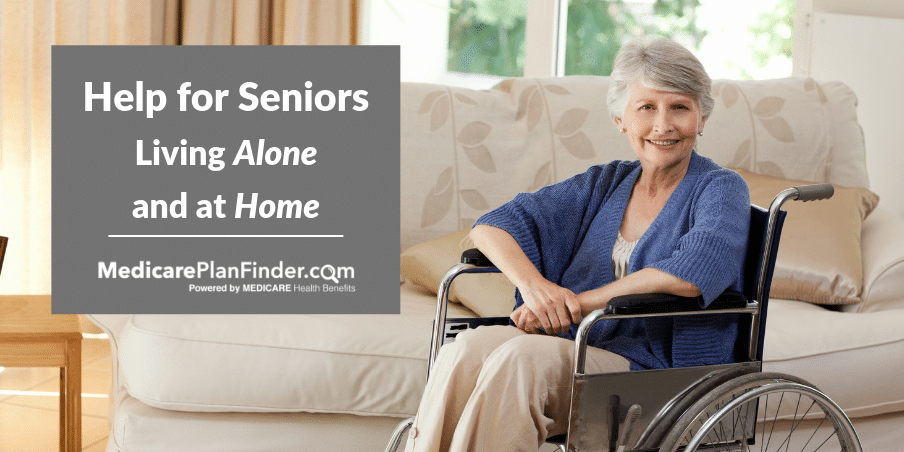
Help for Seniors Living Alone
October 29, 2019Living alone is scary, no matter how old you are, but it gets scarier as you age and develop more health and safety concerns.
Concerned family members may start to lovingly imply that it “might be best” for you to move into an assisted living home, or start to ask questions.
You can share this blog with them to give them a sense of security that you are thinking about this and making the right moves. Living alone can be scary, but it’s not impossible.
Advantages of Elderly Living Alone and at Home
There are more benefits to living alone than your family members may realize. Living alone and at home can cost much less than moving into a retirement home or nursing facility. Of course, this can change depending on whether you have specific healthcare needs or require an in-home aide.
Living at home can also be much more comfortable. High-tier, expensive nursing homes, and retirement facilities can certainly be nice, but they often come at a cost.
Sometimes, more reasonably-priced facilities are not as comfortable as being home. Plus, there’s a sense of security and happiness that comes with staying in the home that you’ve worked for.
Tips for Living Alone
The following tips will not only provide you with a safer, healthier living situation but will also provide your friends and family members with peace of mind.
- Attend your annual doctor visits, even if you feel fine.
- Keep your social life as active as possible and get to know your neighbors.
- Set reminders on your phone or calendar to refill your medication, or schedule automatic medication reminders.
- Have a first-aid and a disaster preparedness kit easily assessable in case of emergency.
- Make all necessary home repairs as soon as possible.
- Always lock your doors and windows, and consider installing an alarm system.
- Keep a list of emergency contacts pinned in a visible location in case of an emergency.
- Consider purchasing useful devices for your home (see below)
Devices for Seniors Living Alone
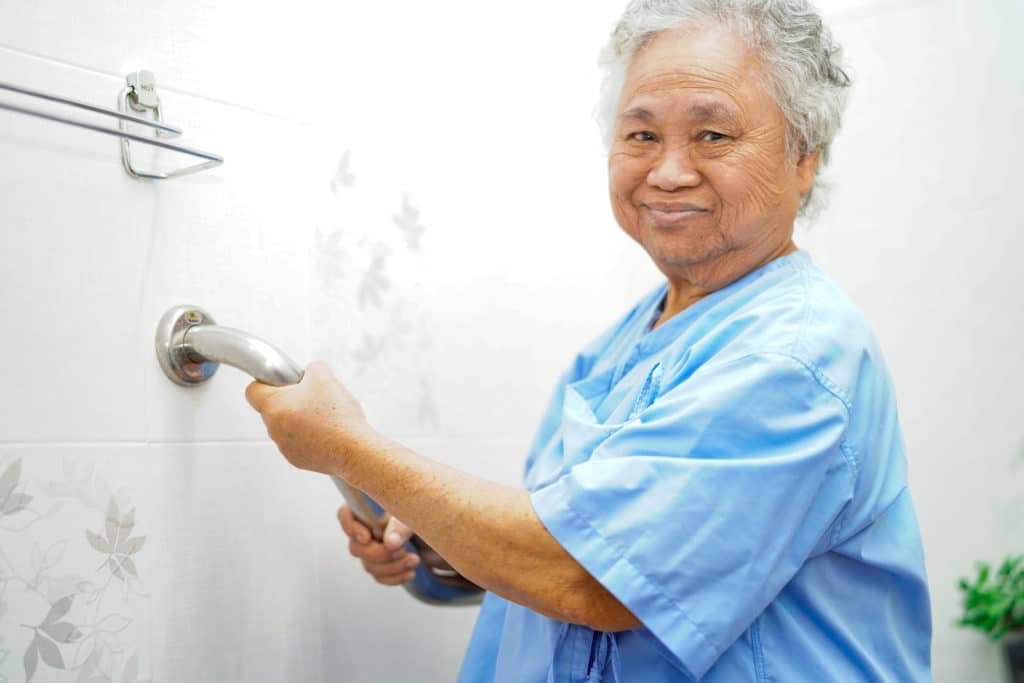
Technology has made living at home by yourself much easier than it was for your grandparents. Everything from automatic vacuums to alarm systems makes home life safer, healthier, and more possible. We searched the internet, and these are some of our favorite devices that you can buy to improve your life at home.
Housekeeping Devices
Smart Vacuum – One of the hardest things about living alone as an older adult is finding ways to keep your house clean. Simple tasks like vacuuming will start to get harder, but smart vacuums can solve that problem for you. All you have to do is press a button on your phone to get a Roomba vacuum to do it for you!
Voice Assistants – Devices like Amazon’s “Alexa” and Google’s “Home” platform can save you from things turning off the light before you walk to bed, or having to get up and walk around too often.
Kitchen & Bath
Bath Mats, Chairs, and Bars – Slips and falls are one of the most dangerous parts of living alone because it’s hard to say how long it will be before someone can help you up. Be sure to buy grip bath mats for your shower or tub (or even for any tiled and slippery areas). Also, consider investing in a chair for the shower so that you don’t have to stand on the slippery tub.
Automatic Kitchen Appliances – Kitchen fires are another major concern for adults living alone. As symptoms of dementia start to appear, leaving appliances on can become a common occurrence. Consider appliances that have automatic “off” functions and cordless devices like this electric kettle.
Life Alert Devices for Seniors Living Alone
Life Alert is just one brand of medical alert device, which is a device you wear that can alert emergency personnel if you need help. Other brands include Medical Guardian and Philips Lifeline.
Life Alert – Life alert can be a lifesaver if you fall and can’t get up, or if you have a medical emergency and can’t reach for the phone. All you have to do is hit a button on your device (which you can wear around your neck), and help will arrive.
Medical Guardian – This company has a few different types of products for medical alerts and home safety. Their devices are capable of detecting falls and alerting authorities of any emergency instantly.
Philips Lifeline – Their products include wearable pieces like watches and necklaces as well as home bases that you can keep in your living room. Like other services, Philips Lifeline products will alert authorities. Uniquely, they focus on unique, individualized care plans, and there is two-way communication available so that you can request a specific type of emergency help.
How Medicare Covers Home Care
You can alleviate a lot of your and your family’s concerns about you living alone at home by taking charge of your in-home care. Medicare Part A covers part-time or intermittent home health services when ordered by a doctor.
It does NOT cover 24-hour care, meal delivery, or homemaker/custodial services, but you may be able to get those other items through select Medicare Advantage plans.
Home Care Services That Accept Medicare
To find home care services near you that accept Medicare, use Medicare.gov’s “Find a home health agency” tool. Type in your zip code and click “search” for a list of the providers in your area.
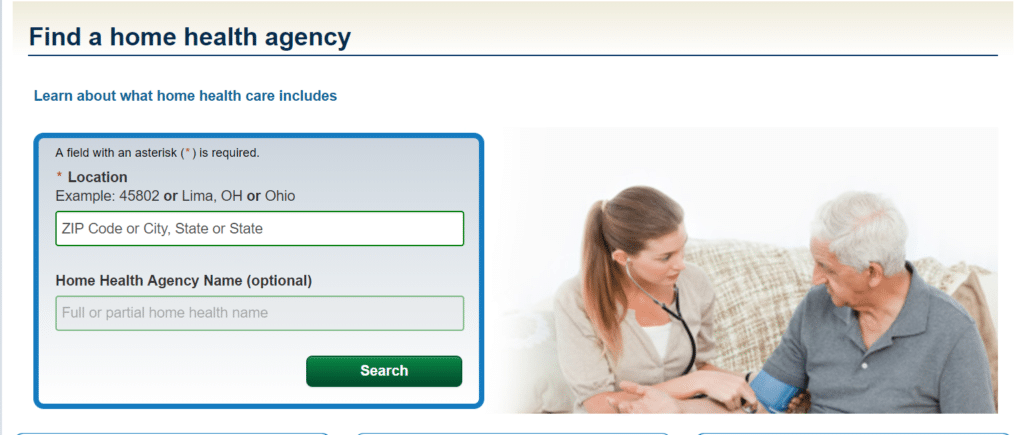
Remember that if you have a Medicare Advantage plan, you’ll need to use your plan’s search tool or list of providers to make sure that the agency or service you want to use accepts your Medicare Advantage coverage.
Organizations That Offer Help for Elderly Living Alone
Living independently does not mean that you are completely alone. Even if you don’t have friends and family members close by, there are several organizations you can reach out to for help.
AARP & the AARP Foundation: AARP is a nonprofit organization with a goal to help people aged 50 and older improve their lives through better nutrition, housing, income, social activities, and more.
Area Agencies on Aging (AAA): The AAA is a nationwide program offering education, meal programs, transportation, and more for aging adults. Each of its programs is localized.
CARIE (Center for Advocacy for the Rights and Interests of the Elderly): CARIE is a coalition that helps individual seniors who ask for help with legal reform and rights.
LASPD (Legal Advocates for Seniors and People with Disabilities): LASPD is an organization of lawyers who advocate for the rights of older adults and disabled people. They focus primarily on Social Security claims.
National Council on Aging: Works with nonprofits, governments, and businesses to provide programs and services for seniors in regards to health, finances, and legal concerns.
National Institute on Aging (NIA): The NIA conducts research on the well-being of older adults and is a great source for health topics. They also operate “Go4Life,” an exercise and physical activity program for seniors.
Meals on Wheels: The Meals on Wheels program is a localized program for meal delivery for people who have a hard time leaving their homes and cooking their own food. Click here to read more about Medicare meal delivery.
PACE (Programs of All-Inclusive Care for the Elderly): PACE helps eligible people over the age of 55 with medical, personal, and social care while they live at home. That can include medication delivery, transportation, etc.
Becoming a Caregiver
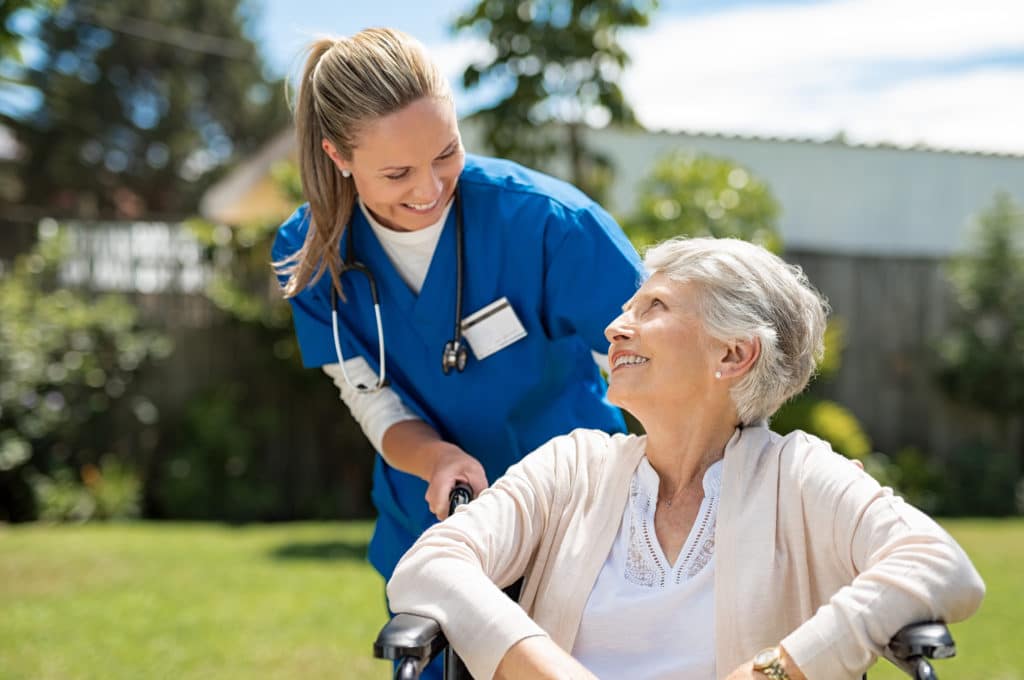
If you are reading this with another person in mind, maybe it’s time for you to become a caregiver. Keeping your loved ones at home instead of moving them to a facility is a tough decision to make.
Some older adults will truly be better off living in a medical facility, while others don’t need that level of attention and will be more comfortable at home. Have the discussion not only with your loved one but also with their doctors.
If you decide that your loved one is going to stay at home, and you would like to become their primary caregiver, there are a few steps you should take:
- Learn everything you can about your loved one’s medical conditions so that you can provide the best possible care.
- Reach out to the senior advocacy groups listed above for help with managing your loved one’s in-home care.
- Talk to your loved one about Medicare, Medicaid, and private health insurance options and find out if you are eligible to be paid as a caregiver through their plan (click here to speak with a licensed agent).
- Download our caregiver checklist for more information on becoming a caregiver for your loved ones.
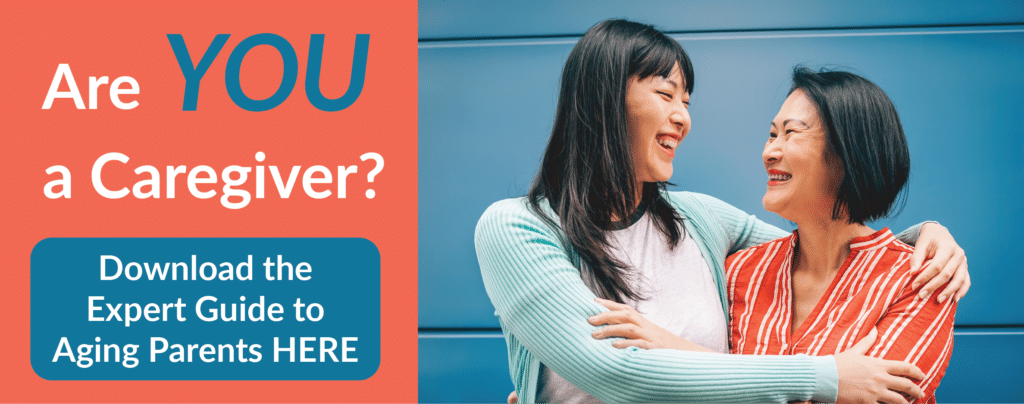
This post was originally published on July 31, 2019, and updated on October 29, 2019.

